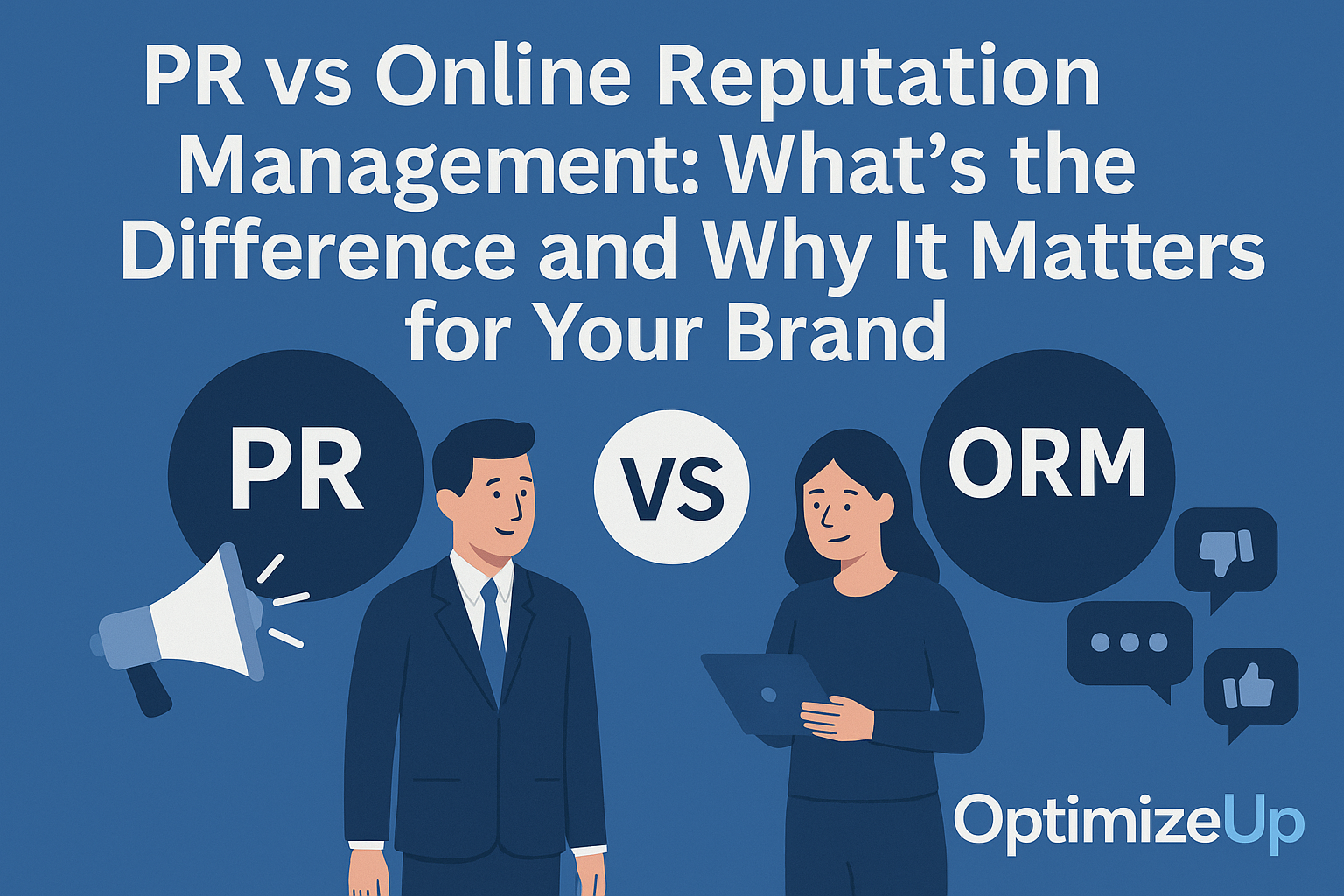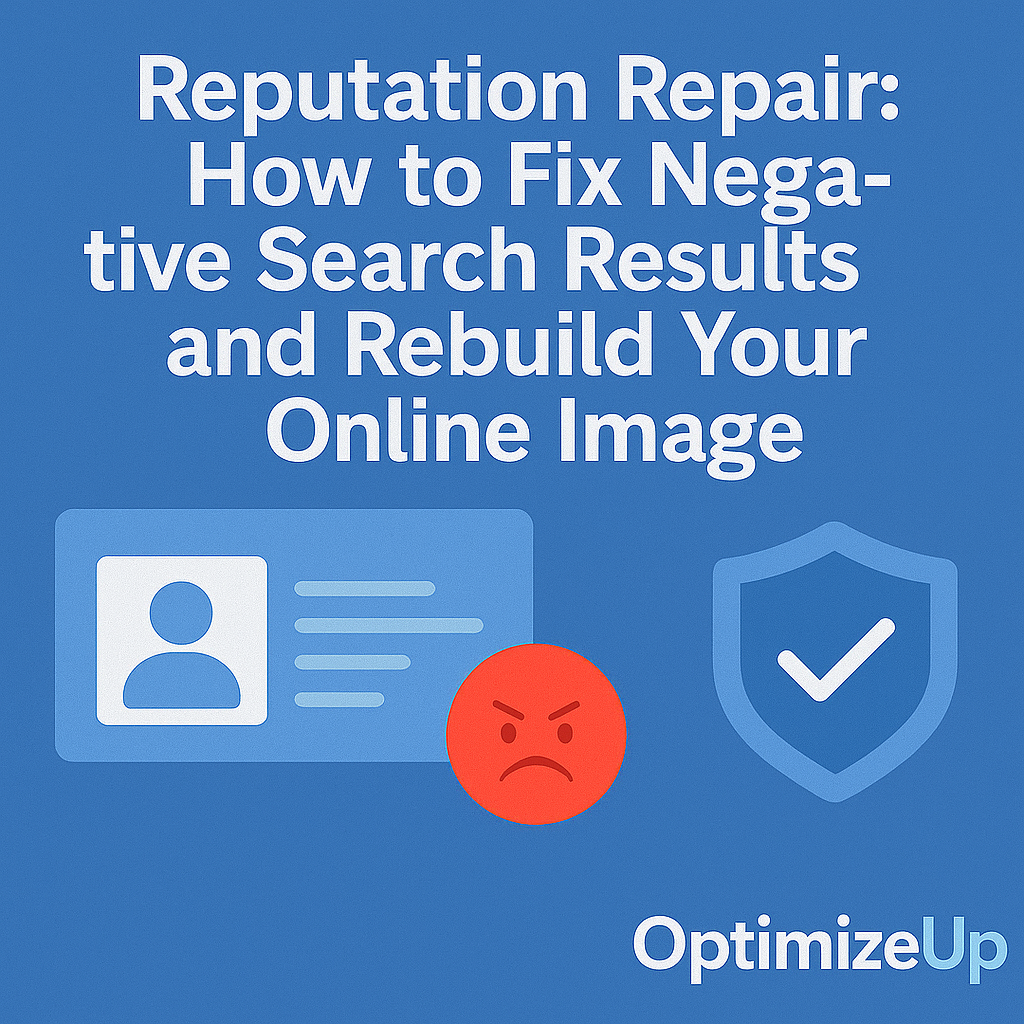Why This Comparison Matters More Than Ever
Every modern brand operates in an environment where perception is currency. Whether you’re a startup founder, a public figure, or a legacy business, how you’re seen online directly impacts your growth, trust, and bottom line.
That’s where two powerful disciplines come in: Public Relations (PR) and Online Reputation Management (ORM).
They sound similar and often overlap. But they are not interchangeable.
This article explores the unique functions, strategies, and ROI of each—and explains why most thriving brands today need both.
What Is Public Relations (PR)?
Public Relations is the strategic process of managing communication between a company and its audience. It includes:
- Press releases and media coverage
- Thought leadership articles
- Press conferences
- Product launches
- Media relations and journalist outreach
- Events and public speaking
- CSR campaigns and investor relations
The primary goals of PR are:
- Building credibility
- Controlling the narrative
- Driving brand awareness
- Influencing public opinion
- Strengthening stakeholder relations
PR operates on the power of third-party endorsement. If a trusted publication or industry influencer praises your brand, that praise carries immense weight.
What Is Online Reputation Management (ORM)?
Online Reputation Management focuses on how your brand is perceived in search results, reviews, and online content. Key functions include:
- Monitoring branded keyword search results
- Suppressing or removing negative content
- Responding to and managing online reviews
- Optimizing SEO for brand-focused queries
- Building and maintaining high-authority assets
- Crisis response and proactive reputation defense
- Reputation audits and competitor benchmarking
ORM is a reactive and proactive strategy that directly shapes your online narrative, targeting every digital footprint associated with your name or business.
“PR tells the story. ORM ensures it’s the first story people see on Google.” — Optimize Up
PR vs Online Reputation Management: Key Differences
| Feature | Public Relations | Online Reputation Management |
|---|---|---|
| Purpose | Earn media and build trust | Control search perception and reviews |
| Channels | News outlets, TV, podcasts | Google, Yelp, Reddit, Glassdoor, YouTube |
| Visibility | May not appear on Google | Appears on Google and other search engines |
| Tactics | Media outreach and storytelling | SEO, review response, content removal |
| Reactive/Proactive | Primarily proactive | Both reactive and proactive |
| Audience | Broad public, journalists | Prospects, employers, investors, clients |
| Measurability | Hard to track direct ROI | Metrics include SERP, sentiment, traffic |
| Focus | Narrative creation | Narrative control |
The Psychology of Trust and Visibility
Modern consumers cross-reference brands. They read reviews, scan search results, and vet companies on platforms like LinkedIn, YouTube, Reddit, and Trustpilot.
A single negative result or bad review can:
- Dissuade job candidates
- Decrease conversions
- Diminish investor confidence
- Prompt media backlash
Where PR builds initial awareness, ORM ensures that the awareness translates into trust.
Consider these trust statistics:
- 84% of people trust online reviews as much as a personal recommendation (BrightLocal)
- 68% of business decision-makers say reputation directly influences purchase decisions
When Do You Need PR?
Public Relations is ideal when you want to:
- Launch a new product or service
- Promote a major announcement
- Earn third-party validation through media
- Build thought leadership in a niche market
- Shape industry perception with expert commentary
- Respond publicly to a company milestone
Examples:
- Getting featured in Forbes or Fast Company
- Speaking at industry events or hosting panels
- Distributing a press release about a merger or acquisition
- Launching a philanthropic initiative
PR opens the door to visibility. But it does not guarantee how that visibility will show up on search engines, or how long it will remain discoverable.
When Do You Need Online Reputation Management?
ORM is essential when you:
- Have negative reviews or articles ranking for your name
- Discover inaccurate or harmful content on page one of Google
- Are recovering from a scandal or crisis
- Want to proactively protect your personal or business reputation
- See competitors hijacking your branded keywords
- Need to control search engine image or video results
Common triggers:
- Fake Ripoff Reports
- Misleading blog posts
- Mugshots or legal filings
- Disgruntled employee reviews on Glassdoor
- Negative YouTube videos or Reddit threads
ORM is the shield and the cleanup crew. It controls damage and builds resilience by optimizing content distribution and controlling brand keywords.
How PR and ORM Can Work Together
The best brands blend both strategies. Here’s how:
1. Amplify Positive Press
ORM can boost the SEO of your best PR hits so they dominate your search results.
2. Suppress Negative Press
ORM strategies can reduce visibility of unwanted articles while PR publishes new, positive stories that shift the narrative.
3. Crisis Management
PR crafts the public statement. ORM ensures the statement shows up when people Google you or your company.
4. Reputation Recovery
ORM fixes search results. PR rebuilds trust in public forums and media through strategic rebranding, speaking engagements, and credibility campaigns.
5. Executive Positioning
PR builds executive visibility. ORM ensures executives appear professional and trustworthy when searched.
Tactics: Side-by-Side Comparison
PR Tools:
- Press releases
- Media kits
- Newswire distribution
- Editorial calendars
- Journalist CRM tools (Muck Rack, Prowly)
ORM Tools:
- Google Alerts and Mention
- Review management software (Podium, Birdeye)
- SEO tools (Ahrefs, SEMrush)
- Content suppression platforms (BrandYourself, WebiMax)
- Structured data tools (Schema.org generators)Both disciplines require long-term planning and consistent execution, but ORM is significantly more technical and reliant on algorithmic expertise.
Costs: How Do PR and ORM Compare?
PR Pricing:
- Monthly retainer: $3,000 to $20,000+
- Costs depend on media targets, campaign length, and agency reputation
- ROI may be indirect (e.g., brand mentions, interview placements)
ORM Pricing:
- Monthly fee: $2,500 to $15,000 depending on reputation severity
- Pricing includes SEO work, asset creation, monitoring, and removal requests
- ROI can be measured through SERP changes, sentiment improvement, and revenue recovery
The most cost-effective approach is to synchronize efforts—leveraging PR wins with ORM optimization to maximize visibility and trust.
Real-World Scenarios
Scenario 1: The CEO Misstep
A tech founder’s tweet sparks outrage. PR issues a formal apology and arranges an interview on a podcast to explain. ORM publishes evergreen content, podcast summaries, and interviews optimized with schema to push the tweet off page one.
Scenario 2: The Negative Review Bomb
A local business faces a coordinated fake review attack. ORM disputes the reviews with the platform, requests removals, and boosts positive reviews. PR pitches a “local hero” story that gets featured in the local newspaper.
Scenario 3: The Brand Rebirth
An ex-politician enters the private sector. ORM removes outdated press, creates a personal website, and builds new video content. PR lands interviews in industry-specific magazines and organizes webinars.
Scenario 4: The Investor’s Search
A VC considers funding a startup. Google reveals old legal disputes. ORM addresses inaccuracies and elevates press mentions of awards and accolades. PR writes and pitches a founder profile to shift perception.
Optimize Up: The Reputation Partner That Understands Both Worlds
At Optimize Up, we bridge the gap between PR and ORM by offering:
- Reputation audits for individuals and companies
- Search engine content repair and SEO
- Strategic content creation and backlink building
- Press outreach and earned media placement
- Crisis response and recovery packages
- Executive branding and thought leadership support
We work quietly but effectively, crafting strategies that serve both perception and precision.
“Great stories get attention. Great reputations get trusted.”
Explore our services here.
FAQ: PR vs Online Reputation Management
Not directly. PR creates narratives, but unless optimized for search, the content may not appear where it matters most—Google.
No. ORM focuses on visibility control and search performance, but lacks the ability to secure earned media or public-facing thought leadership.
If your visibility is low, start with PR. If your visibility is harmful, start with ORM.
Anywhere from 30 days to 12 months, depending on keyword difficulty, backlink strategy, and domain authority of the negative content.
When done transparently and legally—yes. Ethical ORM avoids black-hat SEO and focuses on relevance, truth, and fairness.





